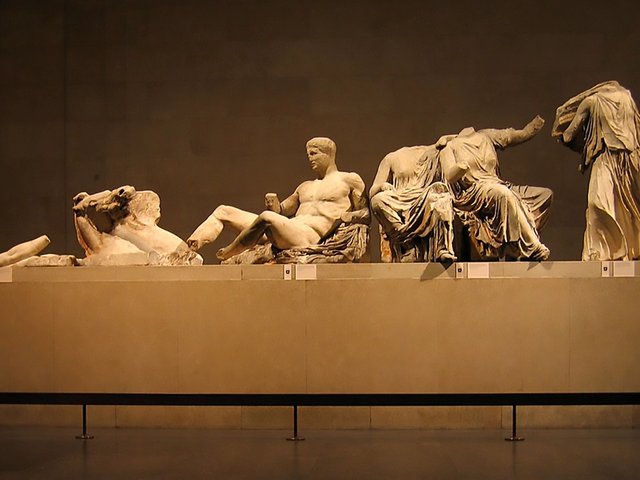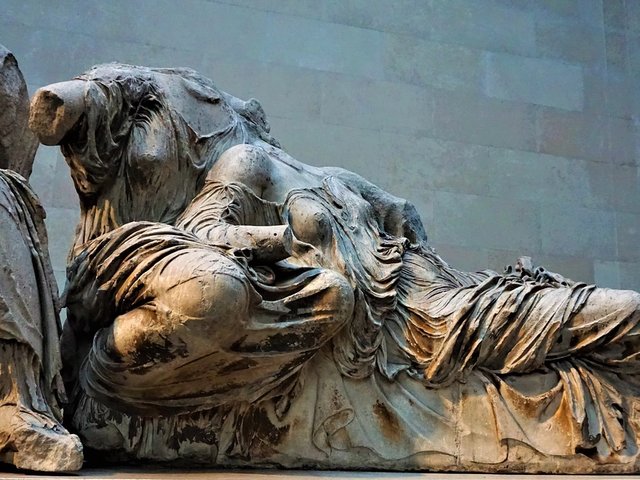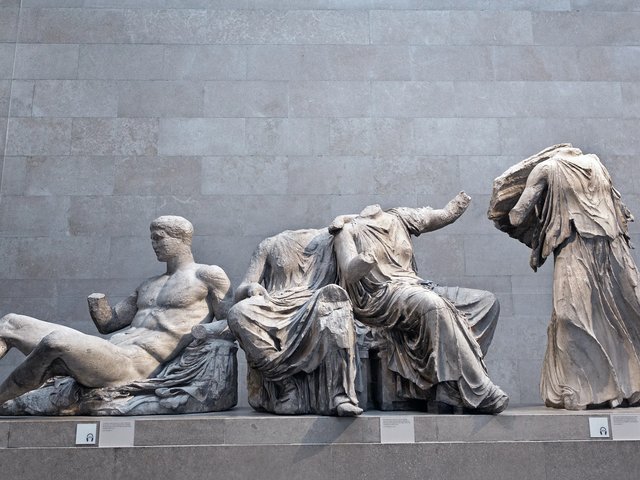A former UK culture minister says that the Parthenon Marbles should be returned to Greece, fuelling the long-standing debate over the reunification of the fifth-century works that have been housed at the British Museum since the early 19th century.
Ed Vaizey, the Conservative minister for culture from 2010 to 2016, revealed his change of heart in an episode of the Hope & Dread podcast hosted by Charlotte Burns and Allan Schwartzman, which was published yesterday. Vaizey says that the “debate has really moved on. I think I would support the return of the [Parthenon] marbles now. Having said that, it is extremely hard to know where to draw the line.”
The sculptures have been housed in the British Museum since 1817 after they were removed from the Parthenon temple on the Acropolis in Athens by the Scottish nobleman Lord Elgin, the then ambassador to the Ottoman court.
Vaizey outlines why the restitution debate is so intense and complex, highlighting the arguments that are played out whenever the issue of returning the ancient artefacts arises. “The first argument is that the Marbles sit in an institution that is a world museum visited by millions of people from all over the world who can benefit from seeing the Marbles in a way they perhaps couldn’t if they were based in Athens,” Vaizey says.
Also, restituting the Marbles might spark a domino effect, prompting calls for other contested items to be returned to their countries of origin. ‘If you give the Marbles back, at what point do you stop?” Vaizey asks Burns.
He also points out that there is a legal argument for keeping the sculptures in the UK as Lord Elgin gained permission from the Turkish army—Athens was then part of the Ottoman Empire—to remove the statues from the Parthenon in 1801. Vaizey concludes nonetheless: “It is so obvious to me that they are so woven into Greek identity, it would be a wonderful thing if they could be returned.”
In an online statement, the trustees of the British Museum say that Elgin acted with the full knowledge and permission of the legal authorities of the day in both Athens and London. “The sculptures on display in London convey huge public benefit as part of the museum's worldwide collection,” they add. The statement reiterates that the trustees have never been asked for a loan of the Parthenon sculptures by Greece, “only for the permanent removal of all of the sculptures in its care to Athens”.
Newly declassified documents recently threw light on the question of whether the British Museum could restitute the Marbles, together with other antiquities and art. Under a 1963 Act of Parliament the museum is still prohibited from deaccessioning from its collection, other than in a few specific situations, such as if items are duplicates. In 1991, the UK ambassador in Athens warned that the British Museum should not hide behind the act when it came to dealing with calls for the return of the Parthenon Marbles.
Meanwhile, Boris Johnson, the UK prime minister, argued in an article written in 1986 that the Marbles should be returned to Greece. Johnson’s piece was published during his time at Oxford University as a classics student.
“The Elgin marbles should leave this northern whisky-drinking guilt-culture, and be displayed where they belong: in a country of bright sunshine and the landscape of Achilles, ‘the shadowy mountains and the echoing sea,’” he wrote in the article published in Debate, once the official magazine of the Oxford Union Society. Johnson’s words were republished by the Greek daily newspaper Ta Nea.
Last month Johnson shifted the decision for returning the Marbles to the trustees of the British Museum after meeting the Greek prime minister, Kyriakos Mitsotakis.


![The “debate has really moved on. I think I would support the return of the [Parthenon] marbles now," said Ed Vaizey Vaizey: photo: Roger Harris; Marbles: Txllxt TxllxT](https://cdn.sanity.io/images/cxgd3urn/production/709f143641d35db3a5a7f624dd4449b08b6b7d97-1333x683.jpg?w=1200&h=615&q=85&fit=crop&auto=format)


